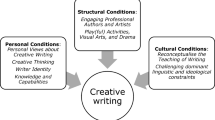Abstract
We apply dialogism to ethical thought to form a theory of Dialogical Ethics (DE). Specifically, DE is defined as the interplay between four historic ethical traditions: Formal (Kantian) Ethics, Content-Sense (Utilitarian) Ethics, Answerability Ethics, and Value/Virtue (Story) Ethics. On a broader level, DE can be understood as the interplay between the ethical ideas of society. We then use DE to analyze a number of problems in business including sweatshop labor and environmental degradation. To counteract these injustices, we propose two recommendations: (1) a rebalancing of Kantian and Utilitarian ethics in business with the ontological focus of Answerability and Value Ethics and (2) a revolution in business education. No longer can business education focus only on techne. Instead, educators must challenge students to develop phronesis, so that they become better able to understand how their actions and how our living stories interacts with the stories of others.
Similar content being viewed by others
References
Adorno, T. W.: 1963/2000, Problems of Moral Philosophy (Stanford University Press, Stanford, CA).
Antonacopoulou, E.P.: 2010, ‘Making the Business School More ‘Critical’: Reflexive Critique Based on Phronesis as a Foundation for Impact’, British Journal of Management, 21, S6-S25.
Bakhtin, M.: 1993, Toward a Philosophy of the Act, (University of Texas Press, Austin).
Belova, O,:2008, ‘No Alibi in Ethics’, In D. Boje (Eds.), Critical Theory in Business Ethics (Sage, London).
Berdyaev, N.: 1914/1954, The Meaning of the Creative Act. Translated to English by Donald A. Lowrie. NY: Harper & Brothers May 1954. First written in Russian 1914; German translation, 1927. Preface to German Edition signed March 1926 (Paris by N. Berdyaev).
Bissell, T., F. Gesauldi, E. de Haan, P. Curr, K. Bjurling, N. Kearney, L. Copleand, B. Gould, T. Connor, and A. Delaney: 2000, ‘Response to Nike’s Claims to have Reformed Its Labour Practices’, http://www.caa.org.au/campaigns/nike/letter_15_March_2000.html. Retrieved 30 Aug 2000.
Boje, D: 1998, ‘Nike, Greek Goddess of Victory or Cruelty? Women’s Stories of Asian Factory Life’, Journal of Organizational Change Management, 11, 461-480.
Boje, D: 1999, ‘Is Nike Roadrunner or Wile E. Coyote? A Postmodern Organizational Analysis of Double Logic’, Journal of Business and Entrepreneurship, 2, 77-109.
Boje, D: 2001, ‘Corporate Writing in the Web of Postmodern Culture and Postindustrial Capitalism’, Management Communication Quartely, 14, 507-516.
Boje, D. (Ed.): 2008, Critical Theory in Business Ethics. (Charlotte, NC: Information Age Publications).
Cafaro, P, and Sandler, R.: 2005, Environmental Virtue Ethics (Rowman and Littlefield Publishers, Inc, New York).
Cole, C: 1996, ‘American Jordan: P.L.A.Y., consensus and punishment’, Sociology of Sport Journal, 13, 366-397.
Cole, C.: 1997, ‘P.L.A.Y., Nike, and Michael Jordan: National Fantasy and the Racialization of Crime and Punishment [online]’, http://www.hmse.memphis.edu/WPSLCmay1.htm. Retrieved 15 Sep 2000.
Cummings, S.: 2000, ‘Resurfacing an Aesthetics of Existence as an Alternative Business Ethics’, pg. 212-227, In Stephen Linstead & Heather Höpfl (Eds.) The Aesthetics of Organization (Sage, London).
Floridi, Luciano: 2006, ‘Information Technologies and the Tragedy of the Good Will’, Ethics and Information Technology 8, 253-262.
Freire, P.: 1972, The Pedagogy of the Oppressed (Herder and Herder, New York).
Freud, Sigmund: 1927, The Future of an Illusion (W.W. Norton and Co., New York).
Fromm, Erich: 1947, Man for Himself (Rinehart & Company, Inc., New York).
Fromm, Erich: 1976, To Have or to Be (Harper & Row Publishers, New York).
Global Exchange: 2007, http://www.globalexchange.org/campaigns/sweatshops/nike/. Retrieved 12 Dec 2008.
Horkheimer, M.: 1933/1993, ‘Materialism and Morality’, in M. Horkheimer (ed.), Between Philosophy and Social Science: Selected Early Writings (MIT Press, Cambridge, MA), pp. 15–49.
Kahle, L.R., Boush, D.M. and M. Phelps: 2000, ‘Good Morning, Vietnam: An Ethical Analysis of Nike Activities in Southeast Asia’, Sports Marketing Quarterly, 9, 43-52.
Kant, I.: 1785, Groundwork for the Metaphysics of Morals (Broadview Press Ltd., Canada).
MacIntyre, A.: 1998, The MacIntyre Reader, K. Knight (Eds.) (The University of Notre Dame Press, Notre Dame, IN).
Mihaly, G and J. Massey: 1997, ‘Dartmouth Professors Speak on Cost of Living Study’ [online]. Part 1 of call available: http://cbae.nmsu.edu/~dboje/Niktuck1confcall.html, Part 2 of call available http://cbae.nmsu.edu/~dboje/Niktuck2confcall.html. Retrieved 30 Aug 2000
Nike: 2000, ‘Student Monitoring Reports [online]’, http://nikebiz.com/labor/reports/toc_studrep.shtml. Retrieved 30 Aug 2000.
Nike: 2008, ‘Workers in Contract Factories [online]’, http://nikeresponsibility.com/pdfs/color/3_Nike_CRR_Workers_C.pdf. Retrieved 12 Dec 2008.
Ritzer, G.: 1993/2002, The McDonaldization of Society (Pine Forge, Newbury Park, CA).
Schor, Juliet: 1991, The Overworked American: The Unexpected Decline of Leisure, (Basic, New York).
Schor, Juliet: 1998, The Overspent American : Why we Want what we Don’t Need, (Basic, New York).
Sethi, SP: 2003, Setting Global Standards: Guidelines in Creating Codes of Conduct in Multinational Corporations, (John Wiley, New Jersey).
Vitell, S. and J. Muncy: 1992, ‘Consumer Ethics: An Empirical Investigation of Factors Influencing Ethical Judgements of the Final Consumer’, Journal of Business Ethics 11, 585-597.
Young, A. and H. Jordan: 1997, ‘The Nike Code of Conduct Report’ [online], http://www.digitalrelease.com/cgi-shl/showcomp.pl?noframes|@goodworks. Retrieved 29 Aug 2000.
Yu, X: 2008, ‘Impacts of Corporate Code of Conduct on Labor Standards: A Case Study of Reebok’s Athletic Footwear Supplier Factory in China’, Journal of Business Ethics, 81, 513-529.
Author information
Authors and Affiliations
Corresponding author
Rights and permissions
About this article
Cite this article
Kopf, D.A., Boje, D. & Torres, I.M. The Good, the Bad and the Ugly: Dialogical Ethics and Market Information. J Bus Ethics 94 (Suppl 2), 285–297 (2010). https://doi.org/10.1007/s10551-011-0757-5
Published:
Issue Date:
DOI: https://doi.org/10.1007/s10551-011-0757-5




